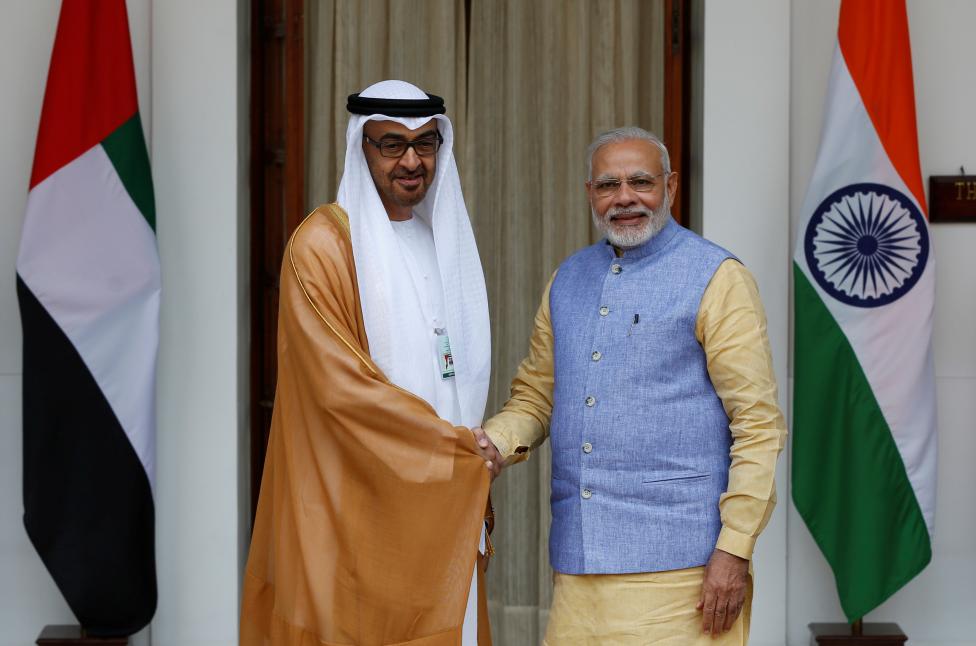In what can be described as a matter of great relief for India, it has been reported that the UAE has assured India that it will cover any shortfall in oil supplies to India following the US sanctions on Iran. The UAE Ambassador to India, Ahmed Al Banna disclosed this welcome news himself. This development ought to be viewed in light of a lingering threat of destabilisation in oil prices, especially after the attack on two oil tankers just outside the Strait of Hormuz, which is also described as the world’s most important oil choke point. This has given rise to apprehensions that the route is now vulnerable to threats of assaults which could destabilise crude prices. In India’s context, it may have a negative bearing on India’s impressive growth story in the recent past.
India has already voiced concerns over the dramatic events in the Strait of Hormuz and has also sought Saudi Arabia’s active role in ensuring stability of oil prices and keeping them within reasonable limits. It must be noted that tensions are running high in the region with the US first approving and then calling off military strikes against Tehran after a US naval drone was shot down over the Strait of Hormuz by Iranian forces.
Under the Countering America’s Adversaries Through Sanctions Act, CAATSA, in the United States, the US administration is advised to impose sanctions against countries that deal with whichever country the US recognizes as an adversary and has imposed sanctions against. In the past year the US has pushed India and other countries to terminate their purchase of oil from Iran and although India was exempted from US sanctions, the waiver expired in April. The US aims to replace India’s oil supplies from Iran with its own produce, while Indian refiners continue to prefer cheaper Iranian oil which helps them produce low-sulphur fuel oil. Indian oil companies have took the decision not to import more oil from Iran after the US waivers ran out on May 2.
The UAE Ambassador to India has said, “UAE has promised and assured India that they will cover any shortage of oil that it might face because of the situation (US sanctions on Iran). It has been done in the past and we commit to the Government of India the same thing now.”
This could not have come at a better time for India given the US sanctions on Iran. The US has ruled out any exemptions on sanction from Iranian oil import. India used to fulfil 10 per cent of its oil needs through Iranian imports before the US sanctions were imposed. This obviously gave rise to apprehensions of shortfall in India’s oil supplies. However, the manner in which the UAE Ambassador has assured India of covering any shortfall in oil supplies has clearly allayed the rising apprehensions of shortfall in supplies on account of the aforementioned events.
This move is a welcome development not only because it substantially relieves India of the fears of destabilising crude prices but also because it showcases the proximity and warmth in Indo-UAE relations. This gesture is indicative of deepening of ties between the two countries especially since Modi government came to power. The Modi government has been able to forge really strong ties with the UAE and the latter has emerged has one of the closest allies for India in the Arab world. The UAE Ambassador also spoke about how India and Saudi Arabia are set to hold talks within the next couple of months regarding an increase in the number of commercial flights between the two countries. He said, “I had a meeting with the Minister of Civil Aviation and other officials and I think there is an understanding that both sides will meet soon to visit the agreement and four sectoral agreements and reach a final understanding on the capacity.”
This development is set to go down as yet another diplomatic achievement for Modi government. The manner in which the Modi government forged strong ties with countries across the world during its first tenure clearly seems to be turning out rather handy for India at a time of slight discomfort due to threats of destabilisation in oil prices.
